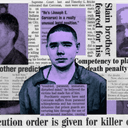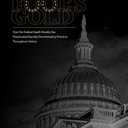In “Confronting Evil: Victims’ Rights in an Age of Terror,” Prof. Wayne Logan of Florida State College of Law examines the use of victim impact evidence in mass-victim prosecutions, such as the 1995 Oklahoma City bombing and the terrorist attacks of September 11. The article will appear in the forthcoming issue of the Georgetown Law Journal. Victim impact evidence (VIE) is “information on decedents’ personal traits and the ways in which their deaths have adversely affected those left behind,” and it has been permitted in capital cases since the Supreme Court decision of Payne v. Tennessee (1991). Logan’s article reviews the history of the use of VIE in the U.S. and abroad and questions its particular role in prosecutions with many victims.
Prof. Logan concludes that the problems of VIE, including its emotional impact on trials, should lead to caution by the international community in incorporating such statements: “[T]he international community would be well advised to exercise restraint if it wishes to secure and maintain the perceived legitimacy of its trial and punishment of those involved in the mass killing of innocents.”
(“Confronting Evil: Victims’ Rights in an Age of Terror,” by Wayne Logan, 96 Georgetown Law Journal 721 (2008)). See Law Reviews.



